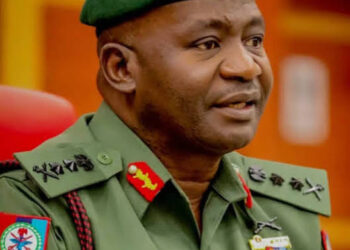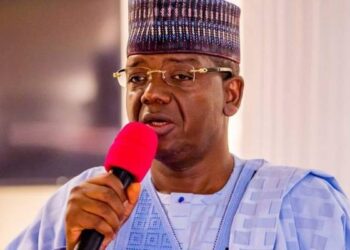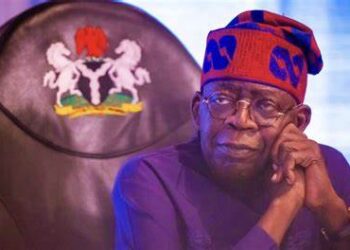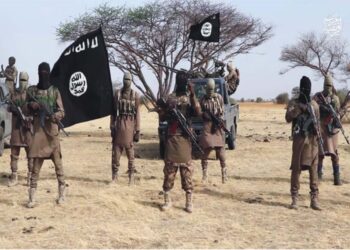The Director-General of the National Orientation Agency has dismissed United States President Donald Trump’s allegations of Christian genocide in Nigeria as yet another catastrophic intelligence failure by Washington, drawing parallels with previous American foreign policy disasters.
Lanre Issa-Onilu made the sharp rebuke during the monthly National Joint Security press briefing in Abuja on Monday, suggesting that the Trump administration’s assessment of Nigeria’s security situation was fundamentally flawed and based on faulty intelligence gathering.
“This is not the first time that the intelligence of the United States failed Americans. It failed in Iraq, it turned out that there was no weapon of mass destruction and they apologized. It failed them in Libya and many other instances. So I’m sure this is another error in their intelligence gathering,” the NOA Director-General stated.
His comments reference two of the most controversial American military interventions of recent decades—the 2003 Iraq invasion launched on false claims about weapons of mass destruction, and the 2011 Libya intervention that contributed to years of chaos in that North African nation.
Issa-Onilu’s remarks came as Nigerian authorities scrambled to respond to an unprecedented escalation in rhetoric from Washington. Trump had posted on his Truth Social platform that he had directed the Pentagon to prepare possible military action against Nigeria if Abuja failed to stop what he characterized as the systematic killing of Christians.
“If we attack, it will be fast, vicious, and sweet, just like the terrorist thugs attack our CHERISHED Christians,” Trump had written, suggesting American military strikes could come swiftly if Nigeria did not act.
When pressed by reporters about what form such intervention might take—whether ground troops or airstrikes—Trump left all options on the table. “Could be, I mean, a lot of things, I envisage a lot of things,” the American President said, adding that Washington would not “allow that to happen.”
While acknowledging that Nigeria faces real security challenges, Issa-Onilu rejected the notion that these amount to religious persecution or genocide. “We all are Nigerians. We know that there are killings in Nigeria and there are killings that should never happen,” he conceded during the briefing.
However, he insisted that characterizing the violence as Christian genocide represented a fundamental misunderstanding of Nigeria’s complex security landscape, where terrorism, banditry, kidnapping, and resource-driven conflicts affect communities regardless of religious affiliation.
The brewing crisis has prompted high-level diplomatic engagement between Abuja and Washington. The Nigerian presidency has proposed a meeting to address American concerns, while the Office of the National Security Adviser convened the Monday briefing with security chiefs specifically to tackle the allegations and their implications for bilateral relations.
Nigerian security officials and government representatives have called for restraint from all parties while emphasizing the importance of continued counter-terrorism cooperation between the two nations. However, they have been equally firm in asserting that Nigeria’s sovereignty must be respected and that any discussion of foreign military intervention is unacceptable.
Issa-Onilu used the platform to appeal for responsible journalism in covering security matters, recognizing that inflammatory reporting could worsen an already volatile situation. He reiterated the federal government’s determination to combat terrorism and address insecurity across all regions of the country.
The NOA chief’s invocation of Iraq and Libya serves as a pointed reminder of the devastating consequences of American military action based on flawed intelligence assessments. Both interventions destabilized entire regions, resulted in hundreds of thousands of deaths, and created power vacuums that terrorist organizations exploited for years afterward.
By drawing these comparisons, Nigerian officials appear to be warning Washington that another intervention based on faulty premises could produce similarly catastrophic results, not just for Nigeria but for the broader West African region.
The standoff has created the most serious diplomatic crisis between Nigeria and the United States in recent memory, with the prospect of American military action—however remote—raising alarm bells across Africa about Western respect for sovereignty and the danger of unilateral interventionism.
As both sides dig in, the coming days will reveal whether diplomatic channels can defuse tensions or whether the war of words will escalate further, potentially pushing bilateral relations to a breaking point.



















